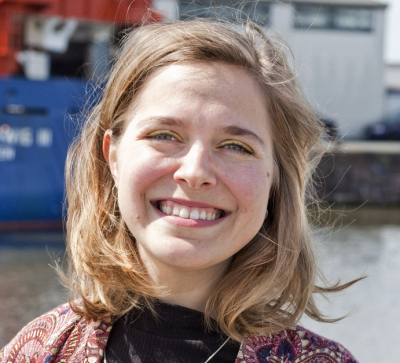- Graduate School GLOMAR
- PhD student members
- Serra Örey
Serra Örey
| Institution: | Hochschule Bremerhaven and Thuenen Institute for Sea Fisheries, Bremerhaven |
| Phone: | +49 471 94460 288 |
| E-mail: | [Bitte aktivieren Sie Javascript] |
| Other webpage(s): | Serra's Thuenen Institute web page |

PhD Project
Patterns in Vessel Tracks: Understanding the drivers influencing behavior of North Sea brown shrimp fishers by analyzing high resolution vessel movement data
Understanding the drivers behind human behavior is crucial for better management of any socio-ecological system. Knowing more about how fishers operate could help optimizing management practices as well as conservation of the target species. In my study I focus on fishing vessels in North Sea that exclusively aim for brown shrimp (Crangon crangon), starting with the question “How do North Sea brown shrimp fishers decide when and where to fish?”.
The German North Sea brown shrimp stock is neither sufficiently monitored nor managed. However, the shrimp fishery was awarded the Marine Stewardship Council (MSC) label, which requires having an effective management system in place ensuring long-term sustainable yield and minimal ecosystem impacts. Since 2005 every fishing vessel larger than 12 m in the EU is obliged to employ a vessel monitoring system (VMS) on board. This satellite-based technology records information about geographic location, direction and speed of the individual vessel at least every two hours (and down to 10 minutes frequency in areas managed under the EU Birds and Habitats Directives). Analysis of such data, creates a new perspective to understand individual fishing behavior at high spatial resolution.
To investigate spatio-temporal patterns in fisher behavior in relation to various management strategies, I plan to complete my project in three parts. Starting with statistical investigation to pin point important factors influencing fishing activity; secondly to implement a dynamic bio-economic fleet model; and finally, to apply the model to test the implications of several different management scenarios, e.g., to understand which implementation may benefit both the sustainable fishing practice and a healthy stock.
Thesis Committee
| Prof. Dr. Oscar Puebla | Leibniz Centre for Tropical Marine Research (ZMT), Bremen and University of Oldenburg |
| Prof. Dr. Rabea Diekmann | University of Applied Sciences, Bremerhaven |
| Dr. Torsten Schulze | Johann Heinrich von Thuenen Institute, Federal Institute for Rural Areas, Forestry and Fisheries, Bremerhaven |
| Dr. Kim Hünerlage | Johann Heinrich von Thuenen Institute, Federal Institute for Rural Areas, Forestry and Fisheries, Bremerhaven |
| Dr. Gerd Kraus | Johann Heinrich von Thuenen Institute, Federal Institute for Rural Areas, Forestry and Fisheries, Bremerhaven |


